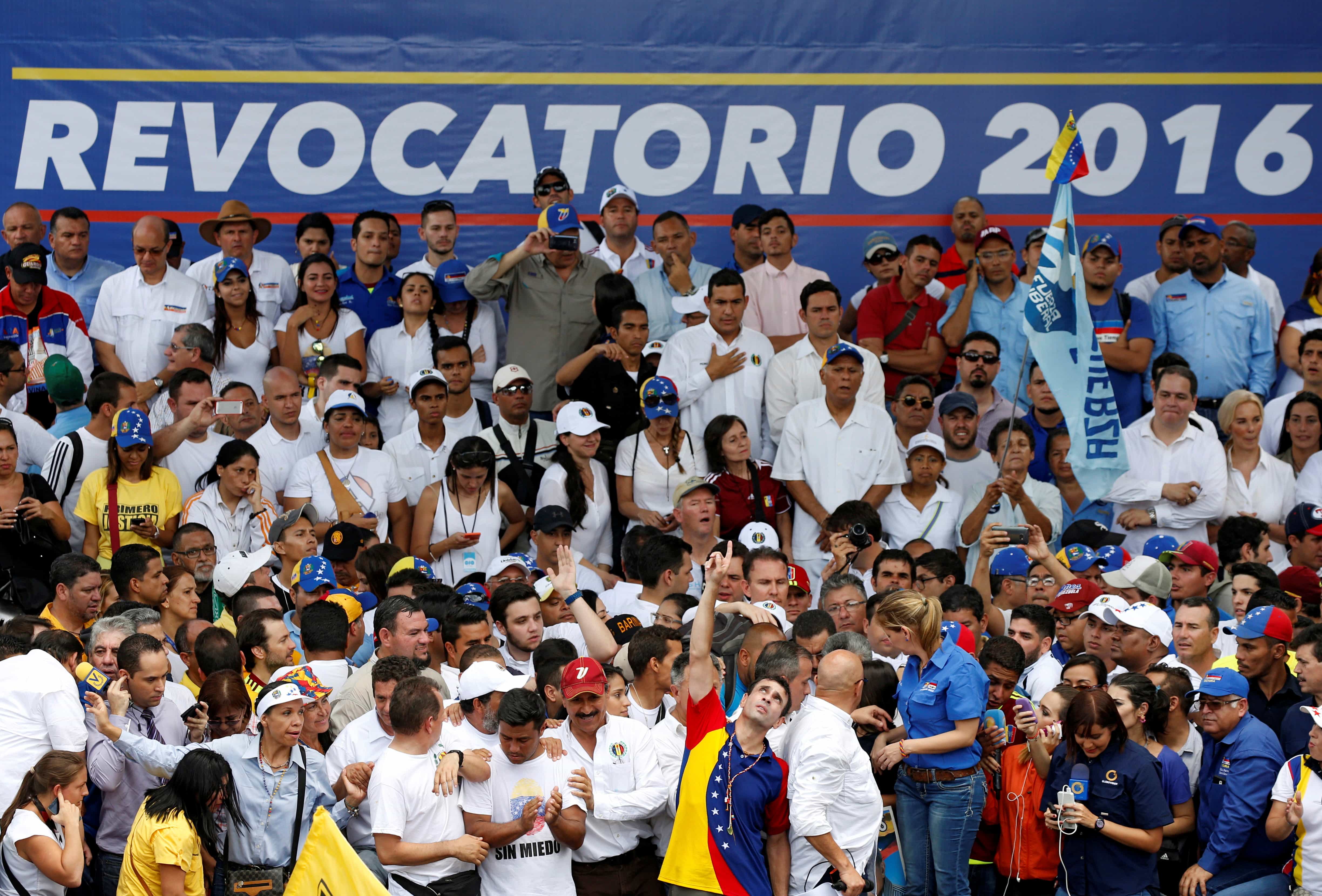How did hundreds of thousands of Venezuelans manage to make their voices heard despite shut down subways, threats and journalist visa denials?
Venezuela and protests are increasingly common partners in the past few years, relating to the country’s economic crisis and sinking approval ratings for President Maduro. The government has a history of trying to control media coverage of the protests, and this was the case again yesterday in Caracas when hundreds of thousands of people took to the streets in an organized march calling for a referendum to oust Maduro from office.
Opposition members and supporters have been trying to kickstart the referendum with a petition, signed by almost 2 million people, asking for a recall vote. The petition was submitted to the National Electoral Council (CNE) on 2 May, but stalled when the CNE declared that 600,000 of the signatures had been falsified. This triggered a signature validation process in June, during which people lined up for hours to have their fingerprints recorded, even though only 1% of the population (or 194,729 voters) was need to endorse the referendum in the first place.
Election officials in Venezuela are widely believed to be devoted to the government.
The opposition claimed that enough signatures had been validated by the end of June, but the CNE has yet to set a date for the next step – a second petition that must be signed by 20% of the population (almost 4 million people).
After that, the last step will be the actual vote to recall. In order to remove the president, the same or greater number of people who voted him into office must vote him out. That would be at least 7,587,579 people. A poll in August revealed 83% of voters said they would vote for a recall – more than enough to remove Maduro.
The protests on 1 September are evidence of rising frustrations with the delays in the process and with almost every part of daily life in Venezuela. Crime rates have risen, shortages of food and medicines grow worse day by day, and all those people who signed the first petition feel like they are not being heard.
The timing of the referendum matters. If it takes place after 10 January 2017 and voters choose to remove Maduro from office, his vice president will assume the role until the end of his current term, set to end in 2019. However, if the vote happens before that date and has the same outcome, it will trigger a presidential election, and someone from the opposition MUD (Mesa de la Unidad Democrática) alliance could potentially become the first Venezuelan president since 1998 from a party other than the United Socialist Party of Venezuela (PSUV).
Opposition members have pledged to keep the pressure on the CNE until the date for the second petition is announced.
In an effort to downplay the protests, on 31 August at least six international journalists aiming to report on the protests were denied entry to Venezuela. These included reporters for Al Jazeera, and the Andes correspondent for the Committee to Protect Journalists (CPJ), John Otis, who was on assignment for NPR. The government also arrested opposition leaders, blocked roads and shut subway stations in an effort to stop people from participating.
Local press freedom organization IPYS-Venezuela reported that on the morning of 1 September the president of the national telecommunications council, William Castillo, also threatened Venezuelan media about covering the demonstrations, saying that they would apply the rule of law to calls for violence, people ignoring authorities, the disruption of public order and “messages that could cause public anxiety and unease”. Castillo also accused media outlets of using social media to organize violent protests and encourage public unrest. Local TV news channel NTN24 reported threats against its team from pro-government collectives.
By 10:30am on the morning of 1 September, another local organization, Espacio Público, had recorded 12 cases of free expression violations affecting 20 people. These included a CNN en español team detained at the airport, and multiple journalists being harassed and stopped along the protest route. In the run-up to 1 September, the organization stressed the importance of the rights to association and peaceful assembly for the participation of citizens in the political process, and for good governance.
Commenting on the situation in Venezuela, the president of the Inter American Press Association (IAPA), Pierre Manigault, said that the Maduro government “opposes journalists’ freedom to work, in the same way that it does not allow the entry of electoral supervisors and human rights activists.”
While the Maduro government has tried to stifle accounts of the protests, even reporting that there were only 30,000 participants (opposition groups estimate there were over 1 million), judging by the numerous local and international news stories about the demonstration, protesters in Venezuela have been heard.
But will the government and electoral authorities listen?
